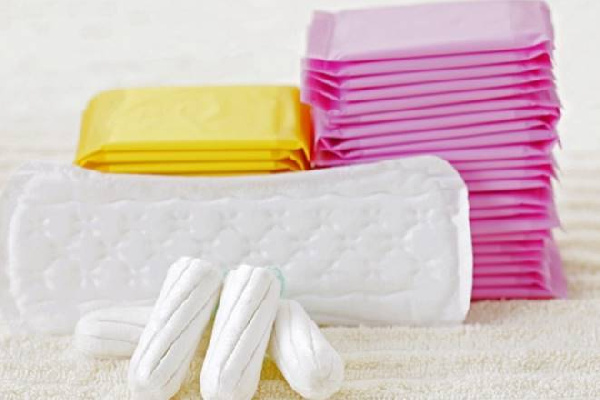The Women Organizer for the National Democratic Congress (NDC) in Tain constituency in the Bono region, Amponsah Gyan Gloria has called for taxes that have been imposed on disposable sanitary pads to be scraped.
She was speaking in an exclusive interview with Univers Akan Desk on the classification of sanitary pads as luxury products in its taxing.
According to her, menstrual health is a natural normal life process in females the needs extreme care in handling. The need for proper hygiene calls for the use of the sanitary pads, making it a necessity.
However in Ghana, sanitary pads are considered as a luxury product by the government.
Gloria Amponsah questions the classification of sanitary pads as luxury, therefore urging the government to remove the taxes allow females access the products with ease.
“Luxury is a condition of abundance or great ease and comfort, how can this be involved in menstrual flow?Is menstrual flow a luxury?”
She then noted that disposable sanitary pads are a preferred menstrual and products due to its management.
“Most women and girls using disposable menstrual materials is the preferred choice for the sake of effective management of reusable menstrual pads and cloth is a challenge.”
She also touched on the fact that some girls from poor socio-economic environment tend to resort to premature sexual activities to be able to afford sanitary pads for its use.
“Nevertheless, most girls from low-income households in Ghana are unable to access the sanitary pads to ensure optimal hygiene due to the high cost of the product, therefore engage in premature sexual engagements to help afford the product and causing teenage pregnancies.”
The Women Organizer finally added her voice to the many calls to scrap off taxes from sanitary pads.
Meanwhile, AGU has been pleading with government to not remove taxes from sanitary pads.
According to AGI, making sanitary pads free of taxes would increase the rate of imports of sanitary pads due to low pricing.
This would result in the decline of local industries geared at manufacturing sanitary pads and would be detrimental to the local Ghanaian business platform.
–
Story by | Emmanuella Adu Gyamfi | univers.ug.edu.gh





